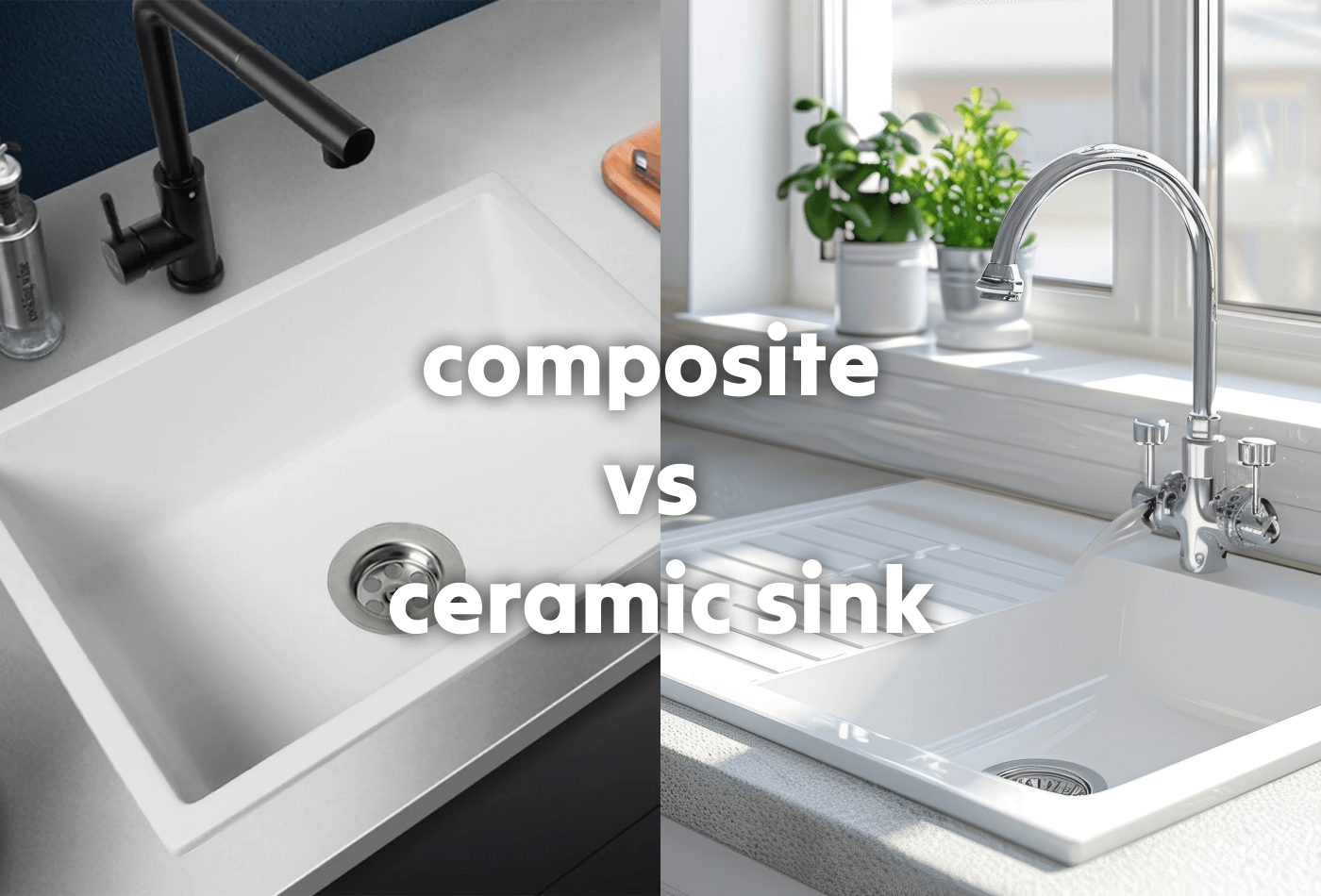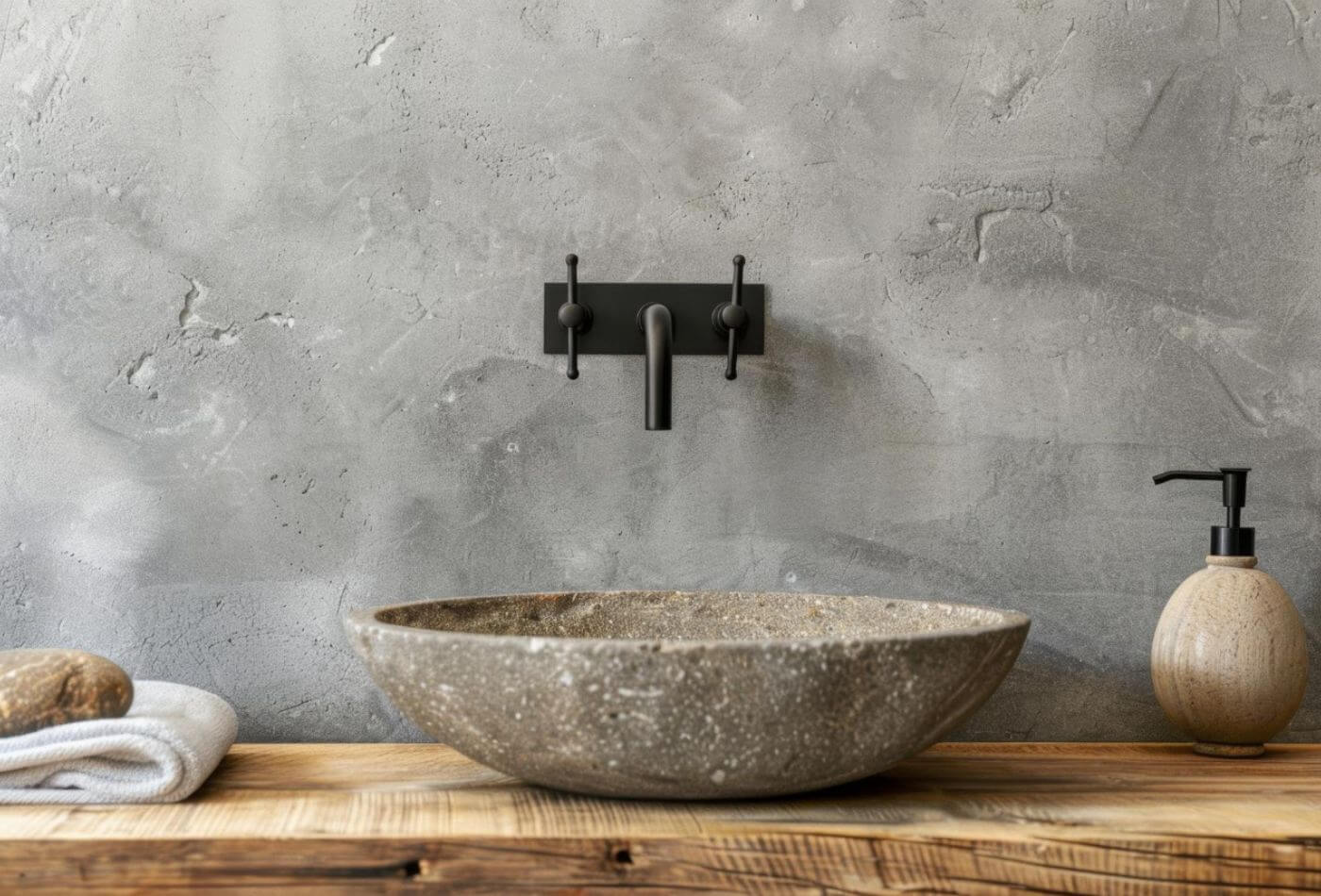Table of Contents
- What Is a Composite Kitchen Sink?
- What Is a Ceramic Sink?
- Composite vs Ceramic Sink: Pros & Cons
- What Materials Are Used in Composite Sinks?
- What Materials Are Used in Ceramic Sinks?
- Cost Considerations: Which Sink Fits Your Budget?
- Composite vs Ceramic Sink: Which One’s Right for You?
- Summary
- Frequently Asked Questions And Answers:
Stuck between choosing a Composite vs Ceramic sink for your kitchen upgrade? It’s a very tough decision, isn’t it? There are so many options, so you need to know materials that will handle your daily kitchen chaos while still looking very stunning. It can feel overwhelming as well. But don’t worry; we are always here to help you cover everything about Composite vs Ceramic sink options! In this blog, we’ll help you to break down the pros and cons of each, from durability to style, so that you can confidently pick the sink that’s perfect for your home as well. Let’s explore it!
Please contact us at 0330 113 5868 or email info@work-tops.com.
What Is a Composite Kitchen Sink?
A composite sink is thoroughly made from a blend of materials, usually made from Quartz or Granite, which are mixed with resin. This combination thoroughly helps to create a very durable, scratch-resistant surface that is available in a variety of colours and finishes as well. It is very important to note that composite sinks are gaining popularity due to their modern appearance and practical benefits in the kitchen. When comparing Composite vs Ceramic sinks, the composite option stands out for its durability and versatile design, which makes it a very strong contender for any kitchen upgrade.
What Is a Ceramic Sink?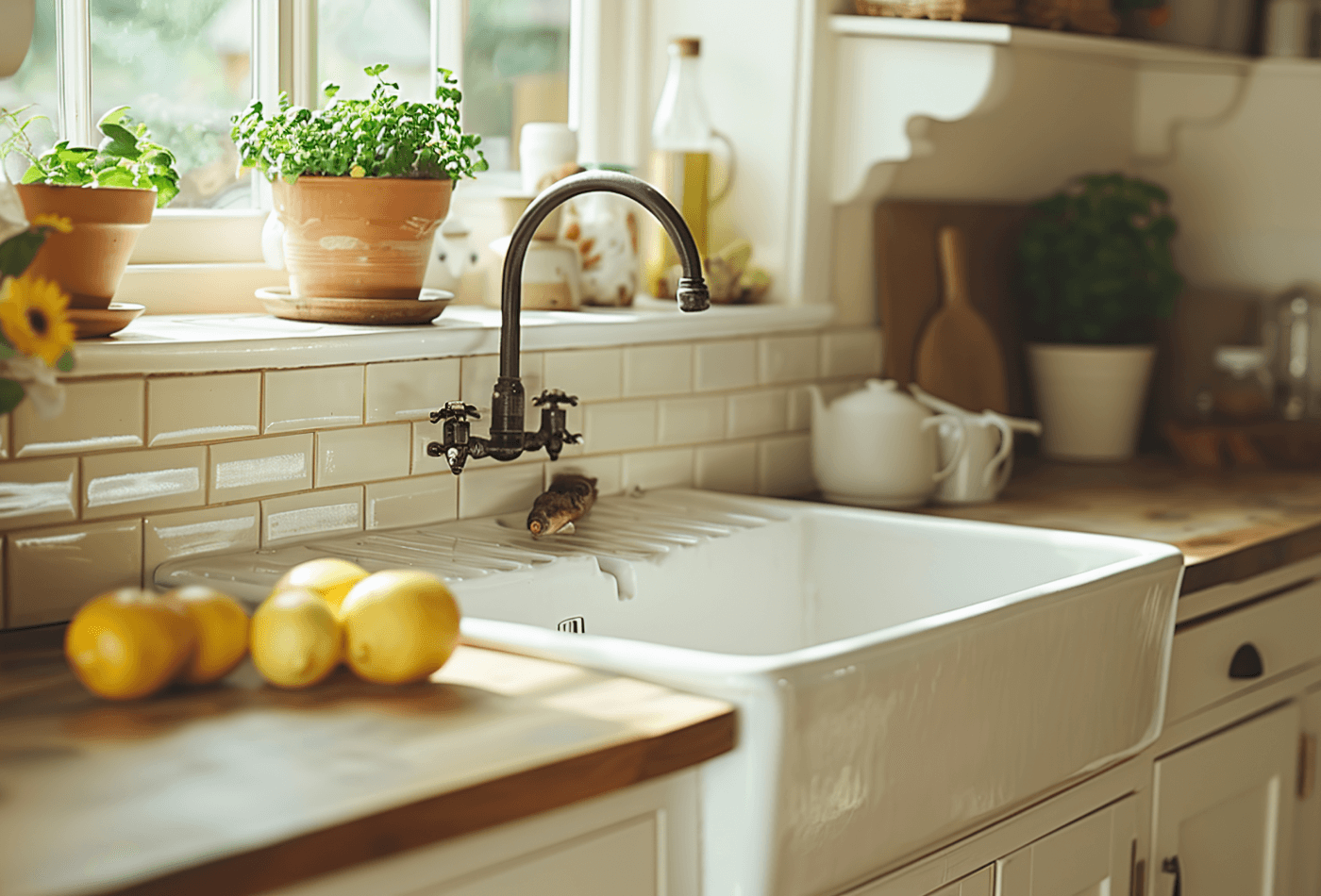
Ceramic sinks are made from fireclay or Porcelain and heated at high temperatures to create a very glossy, non-porous surface as well. These sinks have a very classic look and are also highly resistant to stains and scratches as well, which also helps to make them a traditional favourite in kitchens and bathrooms. When comparing Composite vs Ceramic sinks, the Ceramic option appeals to those who love timeless elegance and easy maintenance as well, which helps to offer durability with a touch of vintage charm.
LAGOON INTEGRITY SINK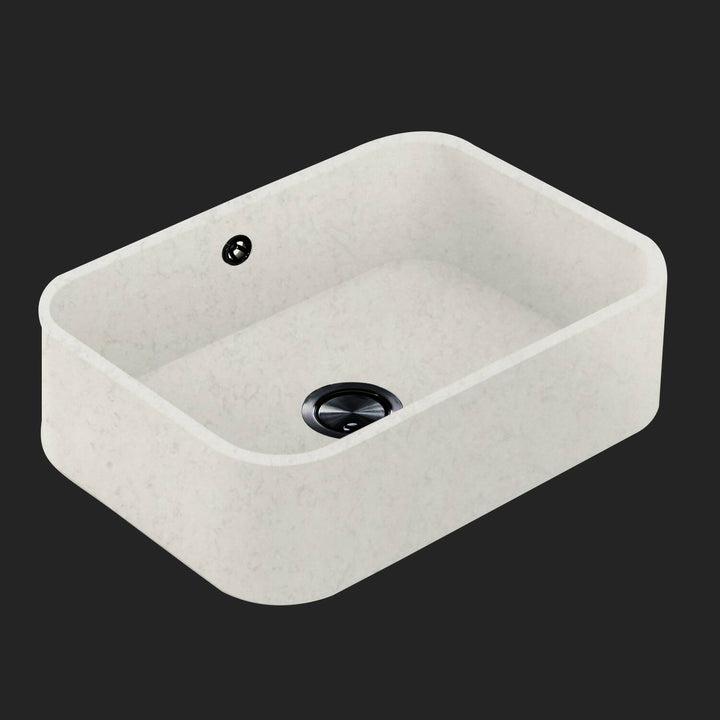
£612.48 Lagoon Integrity Sink has a white base decorated with graceful, grey veins. Its dazzling finish makes a perfect addition in both residential and commercial kitchen settings. Silestone sinks boast the kitchen mood and can give everything a tranquil finish. Lagoon… read more |
SNOWY LBIZA INTEGRITY SINK
£723.84 The Snowy Lbiza Integrity Sink is a seamless blend of style and functionality for your kitchen. With its pristine white appearance and durable construction, this sink not only adds a touch of elegance but also ensures long-lasting performance. Ideal for… read more |
NIGHT TEBAS 18 INTEGRITY SINK
£723.84 Night Tebas 18 Integrity Sink is a sturdy silestone sink with a basic dark green colour and no discernible patterns or ornamentation. The slab requires no coatings or sealants and is durable and simple to maintain. Both conventional and modern… read more |
Composite vs Ceramic Sink: Pros & Cons
Composite Sink | Pros
Durability: It is highly resistant to scratches and chips.
Stain-resistant: Non-porous surface repels stains as well.
Variety: It is available in numerous colours and textures.
Heat-resistant: It can withstand very high temperatures without any damage.
Composite Sink | Cons
Price: It is generally more expensive than ceramic.
Weight: It is very heavy when compared to other materials,
Additional support: It also may require some additional support as well.
Ceramic Sink | Pros
Aesthetic Appeal: It gives a very timeless and elegant appearance.
Easy to Clean: Glossy, non-porous surface resists dirt and stains as well.
Cost-effective: Generally, it is more affordable than composite sinks.
Ceramic Sink | Cons
Less Durable: It is prone to cracks and chips if heavy objects are dropped.
Heat Sensitivity: While heat-resistant, extreme changes in temperature can cause cracking as well.
What Materials Are Used in Composite Sinks?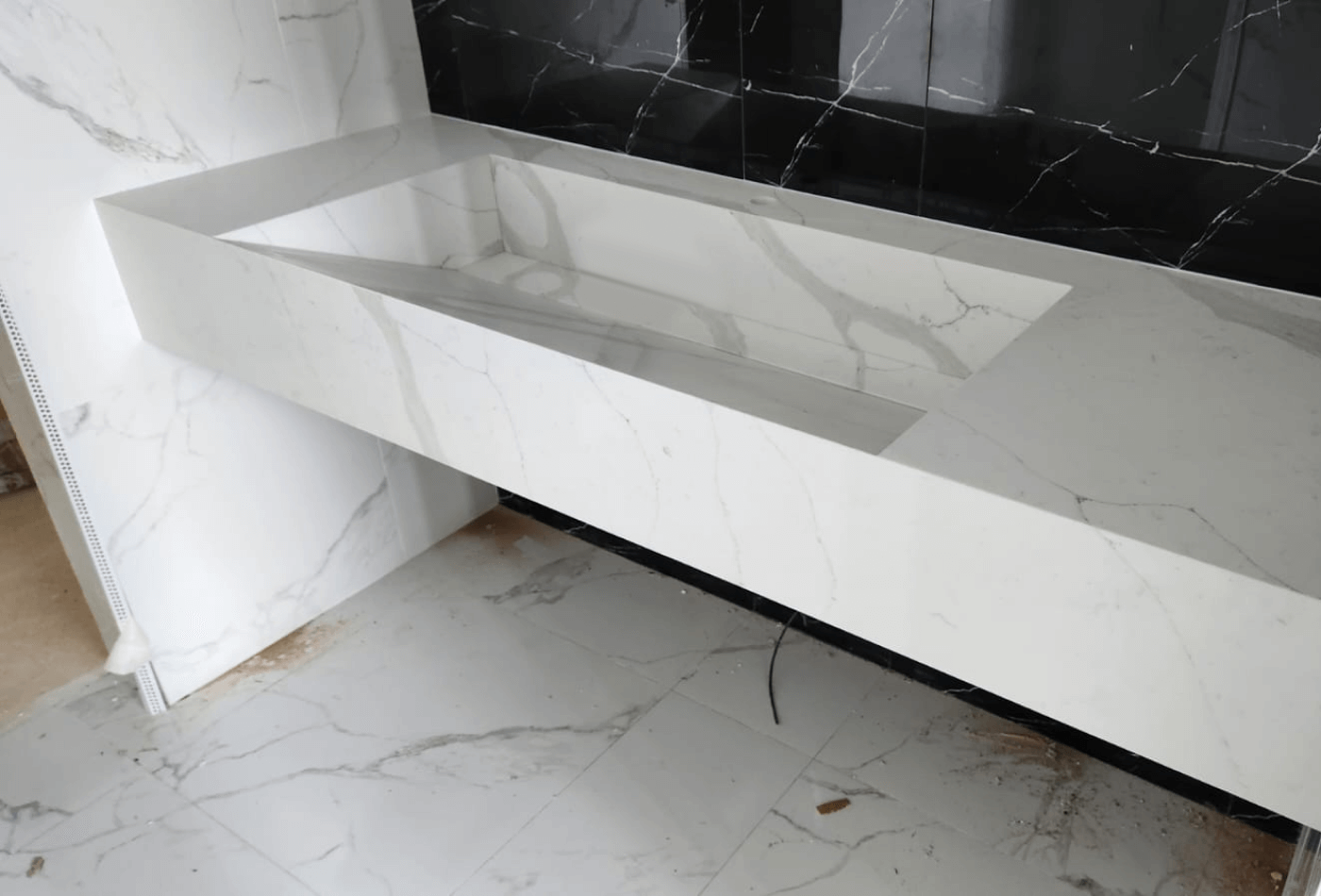
Composition of Composite Sinks
They’re especially made from a mix of Quartz or Granite particles and resin.
This combo results in a very super-durable sink that’s resistant to scratches, stains, and even high temperatures as well.
It’s like having the beauty of composite stone with the added benefit of being virtually maintenance-free as well.
Benefits of Composite Material
Do you know why it's very important to choose composite sinks? Well, for starters, it’s incredibly, very durable.
It’s very scratch-resistant and stain-resistant, and it can withstand high temperatures as well.
There are numerous colours and styles available to match any kitchen decor.
What Materials Are Used in Ceramic Sinks?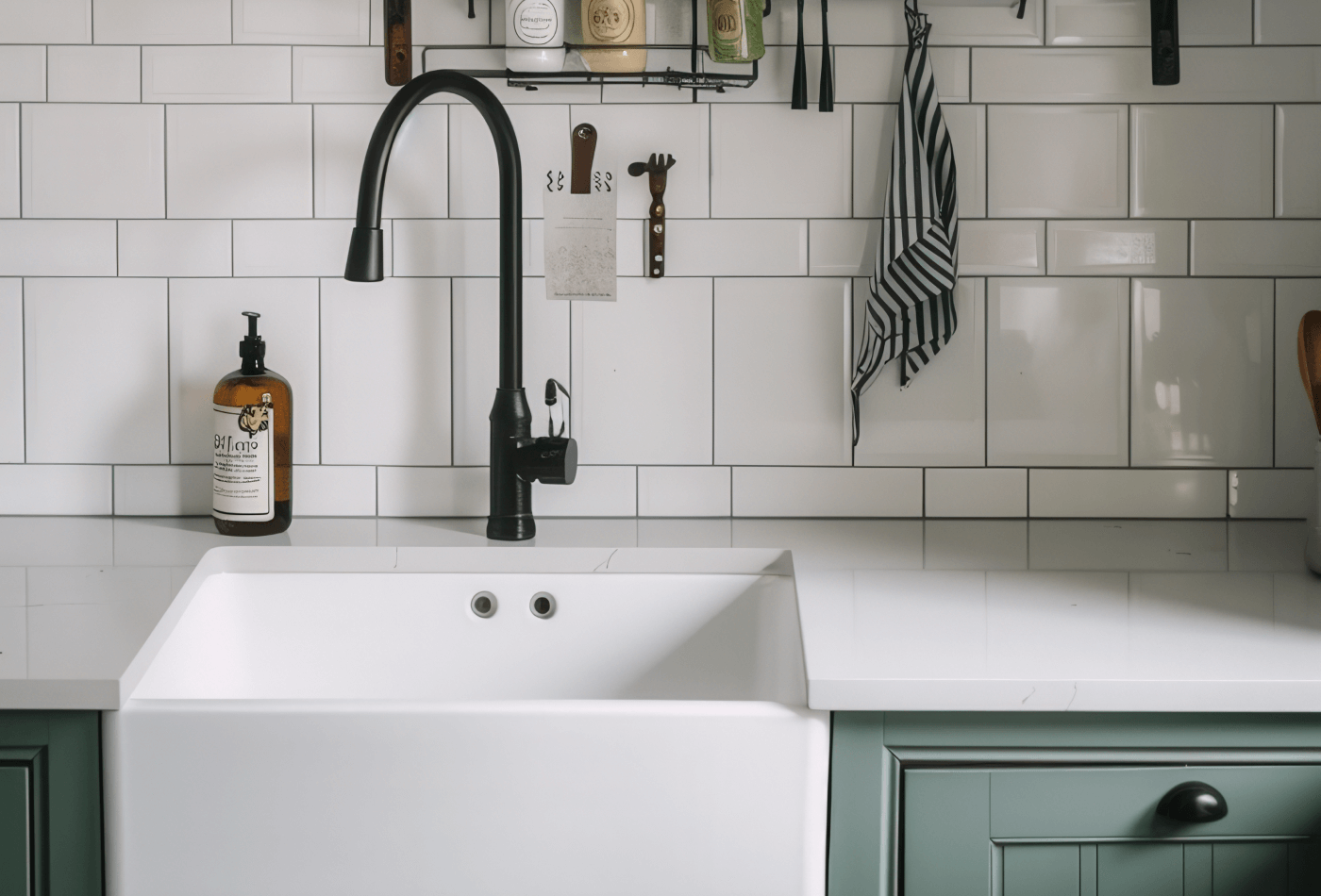
Composition of Ceramic Sinks
Ceramic sinks have two varieties: fireclay and porcelain. Fireclay sinks are made from clay that’s been fired at extremely, very high temperatures, which helps make them incredibly tough. Porcelain sinks, made from a similar process but with a finer finish, offer a very smooth, glossy surface that’s hard to beat in terms of classic style. When weighing the options in the Composite vs Ceramic sink debate, Ceramic sinks always stand out for their durability and timeless elegance, so they are always considered a very popular choice in many homes.
Benefits of Ceramic Material
Ceramic sinks are highly known for their elegant appearance and smooth finish. They’re highly resistant to stains and easy to clean, which makes them a great choice for a stylish, low-maintenance kitchen. They have that timeless look also that can thoroughly elevate any kitchen design as well.
BIANCO COMPOSITE QUARTZ

£300.92
Bianco Composite Quartz is a leading engineered stone material that has gained popularity in both residential and commercial settings. This innovative material is a blend of natural quartz crystals, resins, and other pigments, resulting in a Beige coloured durable slab… read more
BEIGE COMPOSITE MARBLE

£247.01
Beige Composite Marble refers to a type of engineered stone that mimics the appearance of natural Marble. It is composed of a blend of natural stone aggregates, resins, and pigments, which are combined and compressed to create slabs or tiles… read more
ERAMOSA MOCA COMPOSITE QUARTZ

£388.51
Eramosa Moca Composite Quartz is a cute Beige-grey also showing shade of dappled brown slab engineered to withstand in terms of hard conditions and factors. Fine-grained beige-grey quartz compound stone with darker veins spread over the surface (quartz compound stone… read more
Cost Considerations: Which Sink Fits Your Budget?
With our Cost effective stone alternatives, you shall make custom ideas for your home.
Price Comparison
Let’s talk about cost considerations now. Composite sinks generally come with a very high price tag due to their durability and modern appeal.
Ceramic sinks are usually more affordable, and they also offer a classic look at a lower cost.
It's very important to understand the price range for each that can help you stay within your budget without compromising on quality.
Long-Term Investment
Just try to think about the long game. A higher initial investment in a composite sink might save you money in the very long run due to its durability and low maintenance as well.
On the other hand, a Ceramic sink is considered a very budget-friendly option that still provides style and functionality as well.
Additional Costs
Please don’t forget about installation and maintenance costs.
Composite sinks may require some specialised installation, which can add to the overall expense as well.
Ceramic sinks are generally very easy to install, but they might need more frequent maintenance to keep them looking their best.
Composite vs Ceramic Sink: Which One’s Right for You?
Just try to stand in your kitchen and envision the ideal sink; then, you might find yourself at a crossroads when comparing Composite vs Ceramic sinks. Each material offers very distinct advantages, but understanding the differences between Composite vs Ceramic sink options can thoroughly help you make the best choice for your kitchen needs.
Summary
Are you leaning toward the very sleek, modern look and durability of a composite sink, or does the very classic charm of a ceramic sink fit your style? When it comes to "Composite vs Ceramic sink", both options bring something very unique to the table as well. If you want a sink that can handle the daily wear and tear of a busy kitchen while still looking very stylish, then a composite sink might just be your perfect match. Whichever you choose in the composite vs ceramic sink comparison, both sinks have proven to be very reliable options as well. What about your decision?
Get a free quote on stones from us; ping immediately!
Frequently Asked Questions And Answers:
1. What is the Main Difference Between Composite and Ceramic Sinks?
Composite sinks are made from a blend of materials like Quartz or Granite mixed with resin, which helps to make them very highly durable and resistant to scratches, stains, and heat as well.
On the other hand, ceramic sinks are made from fired clay or porcelain, which offers a very classic look with a glossy finish but can be more prone to chipping. In the Composite vs Ceramic sink comparison, it is very important to note that each material offers unique advantages.
2. Which Sink is More Durable: Composite or Ceramic?
Composite sinks generally have very superior durability when compared to ceramic sinks. They can withstand heavy use and high temperatures and resist scratching and staining as well. Ceramic sinks are considered very durable, but they can also be susceptible to chipping or cracking if mishandled.
3. How Do Composite and Ceramic Sinks Compare in Terms of Maintenance?
Composite sinks require very low maintenance only, typically requiring only regular cleaning with mild soap and water. They are very resistant to stains and do not need special care as well.
Ceramic sinks are also relatively very easy to clean, but they may need some occasional polishing to maintain their glossy finish, and they may require very careful handling to avoid chips.
P.s. The readers are informed that none of the content available on any of the pages of Work-tops.com should be taken as legal advice and that Work-tops will not be held accountable for your use of the information contained in or linked from these web pages.

